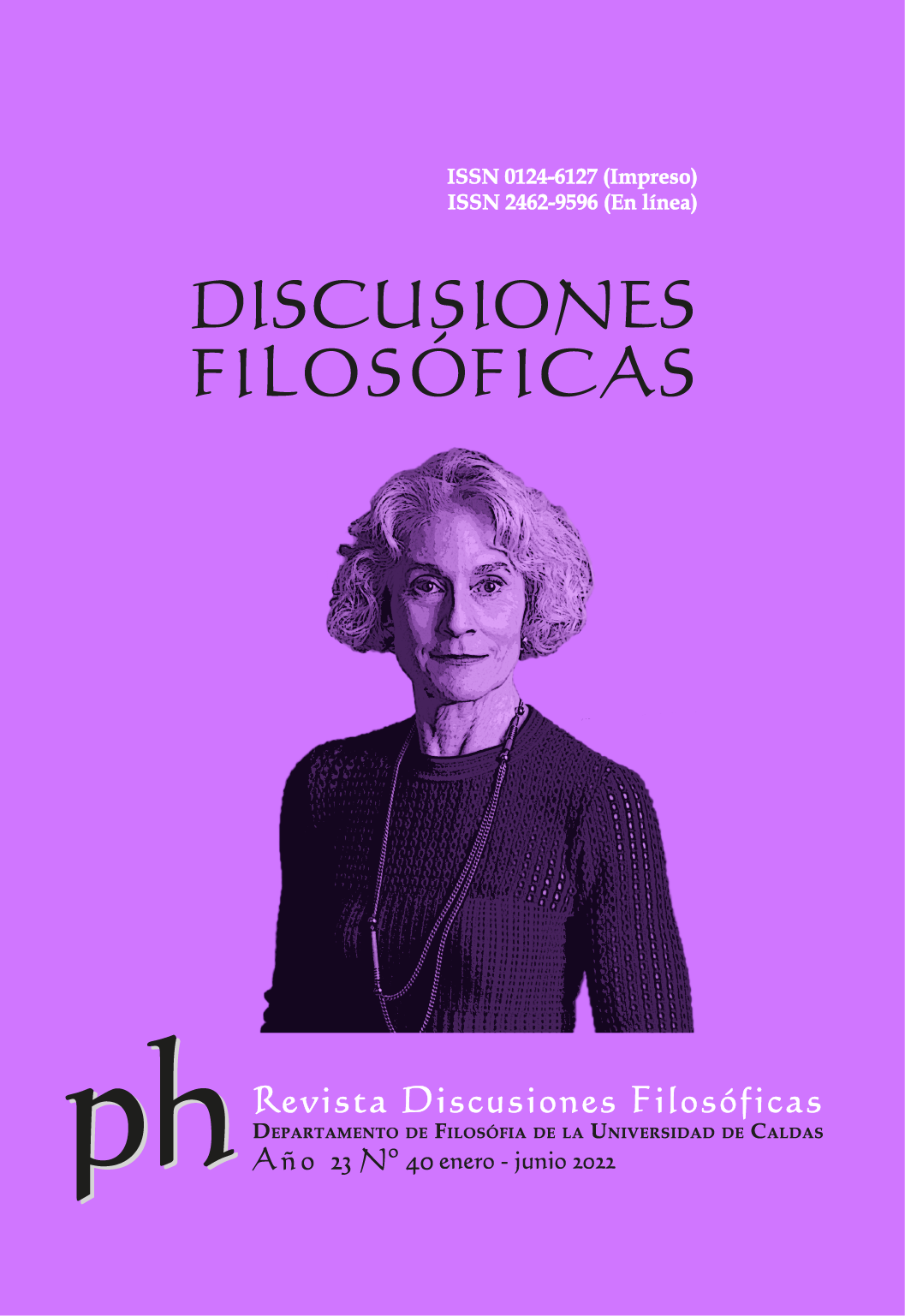Authors
Abstract
This paper argues that in the intuitionist proposal developed in Haidt (2001), an intuitionist proposal is not clearly distinguished from an emotivist
proposal. This supposes an epistemic problem, since the first is understood from a cognitivist perspective while the second is understood from
a non-cognitivist position in the moral sphere. Therefore, there is a tension in the presuppositions of the Haidtian intuitionist proposal that, inter
alia, Huemer (2005) discusses from a moderate rationalist perspective. This paper argues that intuitionism does not imply a commitment to the
discussion between moral objectivism and moral subjectivism, thus allowing an approach that permits a fruitful dialogue between emotivism,
intuitionism and rationalism on the epistemic status of moral judgment. This makes it possible to approach the edge of the moral statute
from a moderate rationalist position, open to interdisciplinary contributions and thus to nonreductionist naturalism. This analysis allows affirming that there are moral truths, being the focus of objectivism - subjectivism discussion on the access to them rather than on the questioning of their existence.
References
Andrews, K. et al. “In Re Non Human Rights Project” Nonhuman Rights Project (NhRP) New York County Clerk’s Index Nos. 162358/15y150149/16 Proposed brief by amici curiae philosophers in support of the petitioner appellant. 2018. https://bit.ly/2HkYWC5
Beauchamp, Tom L. y Wobber, Victoria. “Autonomy in chimpanzees.” Theoretical Medicine and Bioethics, 35(2), 2014: 117-132.
Cleckley, H. The mask of sanity. C. V. Mosby. 1955.
Corradini, A., Galvan, S. y Lowe, E.J. (Eds.). Analytic Philosophy without Naturalism (1st ed.). Routledge. 2006.
Damásio, A. Descartes’ Error: Emotion, Reason and the Human Brain. Avon Books. 1995.
D’Arms, J. and D. Jacobson. “Sentimentalism and Scientism”. En Moral Psychology and Human Agency, ed. J. D’Arms and D. Jacobson, 253-78. Oxford University Press. 2014.
Egler, M. “Testing for the phenomenal: Intuition, metacognition, and philosophical methodology”. Mind & Language. pp. 1-19. 2019.
Goodman, N. Fact, Fiction, and Forecast. Harvard University Press. 1955.
Haack, Susan. “Seis signos de cientismo”. Discusiones Filosóficas, 11(16), 2010: 13-40.
Haidt J. “The emotional dog and its rational tail: a social intuitionist approach to moral judgment.” Psychological Review, 108(4), 2001: 814-834. https://doi.org/10.1037/0033-295x.108.4.814
Hare, R. D. Without Conscience. Guilford Press. 1993.
Hare R. M. Sorting Out Ethics. O.U.P. 1997.
Huemer, M. Ethical Intuitionism. Palgrave Macmillan. 2005.
Hume, D. A treatise of human nature. Penguin, 1969. (Publicado originalmente en 1739-1740)
Johnson, Robert and Cureton, Adam. “Kant’s moral philosophy,” The Stanford Encyclopedia of Philosophy (Fall 2017 Edition), Edward N. Zalta (Ed.), Disponible en https://plato.stanford.edu/archives/fall2017/entries/kant-moral/
Jones, K. y Schroeter, F. (Eds.) The Many Moral Rationalisms. Oxford University Press. 2018.
Kohlberg. L. “From is to ought: How to commit the naturalistic fallacy and get away with it in the study of moral development”. En T. Mischel (Ed.), Cognitive development and epistemology (pp. 151-235). New York: Academic Press. 1971.
Lowe, J. “Rational selves and freedom of action” En Corradini, A., Galvan, S., & Lowe, E.J. (Eds.). pp. 163-177. 2006.
Lukasiewicz, Jan. “O logice trbjwarto§ciowej [On three-valued logic]”, Ruch Filozoficzny 5 (1920) 1920: 169–171.
Marturano, A. “Non-Cognitivism in Ethics”. En International Encyclopedia of Philosophy. https://iep.utm.edu/non-cogn/. 2010.
May, J. “The Limits of Emotion in Moral Judgment” En Jones, K. & Schroeter, F. (Eds.) 2018: 286-306.
Nichols, S. Sentimental Rules: On the Natural Foundations of Moral Judgment. Oxford University Press. 2004.
Nicoli, S. The Role of Intuitions in Philosophical Methodology. Palgrave Macmillan. 2016.
Øyvind Rabbås, Eyjólfur K. Emilsson, Hallvard Fossheim, y Miira Tuominen (eds.) The Quest for the Good Life: Ancient Philosophers on Happiness. Oxford University Press. 2015.
Prinz, J. The Emotional Construction of Morals. Oxford University Press. 2007.
Rawls, J. A Theory of Justice. Cambridge, Harvard University Press. 1971.
Reichenbach, H. Elements of Symbolic Logic, New York, McMillan. 1947.
Rosati, Connie S. “Moral Motivation”, The Stanford Encyclopedia of Philosophy (Winter 2016 Edition), Edward N. Zalta (ed.), URL =
stanford.edu/archives/win2016/entries/moral-motivation/>. 2016.
Shields, K. “Moral internalism, amoralist skepticism and the factivity effect” Philosophical Psychology, 2016: 29:8, 1095-1111.
Sirkel, R. “The Quest for the Good Life: Ancient Philosophers on Happiness”. Notre Dame Philosophical Reviews. 2016. https://bit.ly/3Db1tOj
Smith, M. “Three kinds of moral rationalism” En Jones, K. & Schroeter, F. (Eds.) 2018: 48-69.
van Roojen, Mark. “Moral Cognitivism vs. Non-Cognitivism”, The Stanford Encyclopedia of Philosophy (Fall 2018 Edition), Edward N. Zalta (ed.), URL = https://plato.stanford.edu/archives/fall2018/entries/moral-cognitivism/
Williams, B. Rationalism. En P. Edwards (Ed.), The encyclopedia of philosophy (Vols. 7-8, 1967: 69-75). Macmillan.

 PDF (Español)
PDF (Español)
 FLIP
FLIP





























